Key Takeaways:
- Chronic sleep deprivation and increased cancer risk: This connection is due to disruptions in immune function, hormone regulation, and cellular repair processes.
- Shift work and insomnia can significantly affect sleep quality, leading to higher inflammation and potential DNA damage, which are risk factors that may contribute to cancer development.
- Improving sleep quality can help reduce the risk of cancer. Use sleep hygiene strategies, such as maintaining consistent schedules, limiting screen time, creating an optimized sleep environment, and practicing mindful pre-bed routines.
If you’ve ever thought to yourself whether lack of sleep can cause cancer, you’re not alone. Sleep seriously influences your overall health, and the answer isn’t as straightforward as a simple yes or no. There’s a growing body of research suggesting a link between chronic sleep deprivation and serious health risks, including multiple types of cancer. While it may not be a direct cause, the connection is worth learning about.
Catch empowers you to take control of your cancer risk. We draw from over 10,000 clinical studies and analyze over 500 risk factors, including lifestyle habits like sleep, to give you a clear picture of where you stand. From there, we don’t just leave you hanging. You get a custom screening protocol and an actionable prevention plan that evolves as you make changes.
So, what should you know about the connection between lack of sleep and cancer? Let’s unpack the research and how to protect your health.
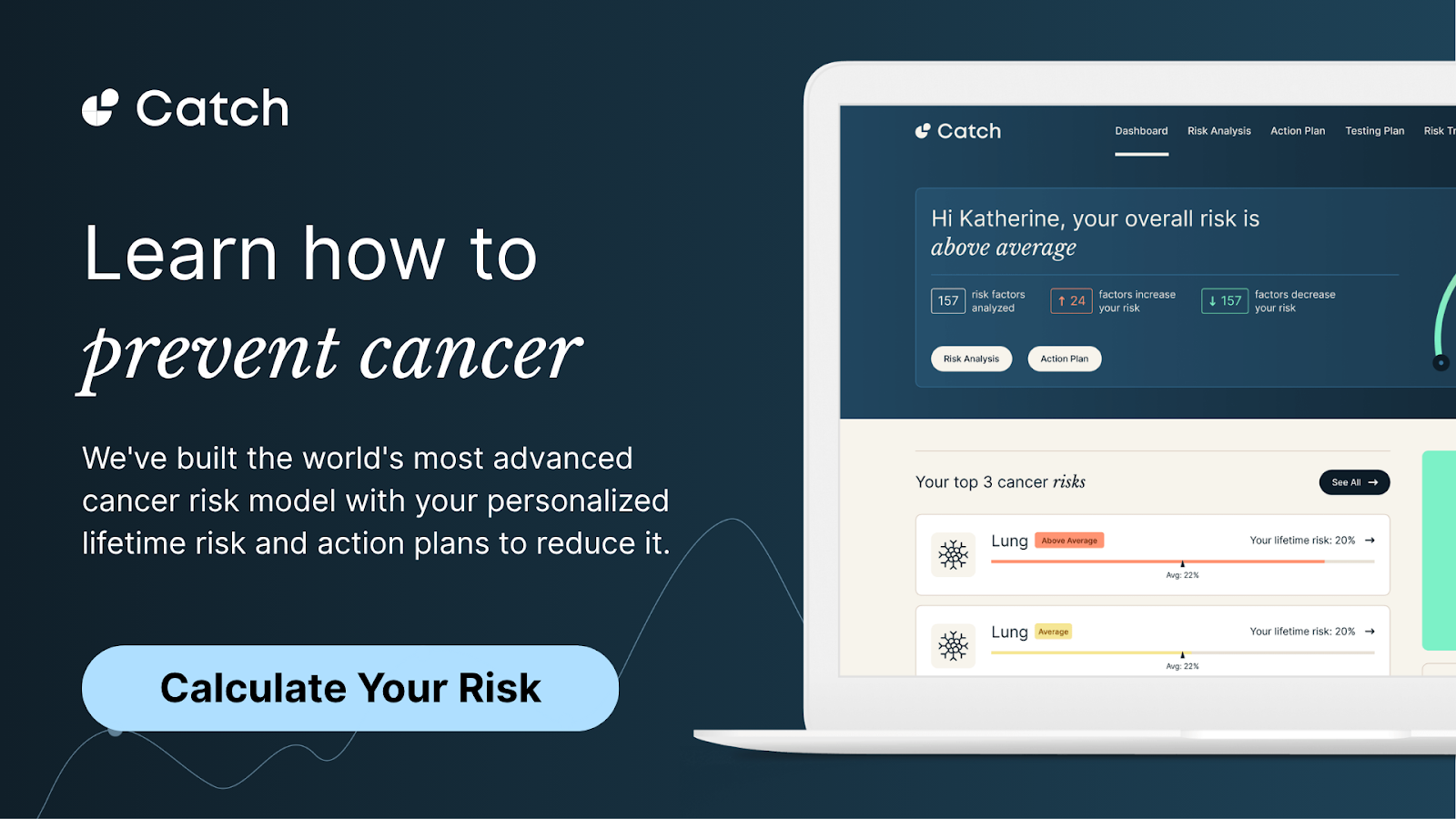
How Sleep Deprivation May Raise Cancer Risk
Emerging research points to a connection between insufficient sleep and an increased risk of developing cancer. Sleep deprivation may raise cancer risk through mechanisms such as:
- Immune Function: Sleep is critical for maintaining immune function, with evidence suggesting that disrupted sleep patterns can hinder the body's ability to detect and eliminate cancerous cells.
- Hormones: A lack of sleep can lead to an imbalance in key hormones, like melatonin, which prepares the body for sleep and plays a role in balancing other hormones. Notably, cortisol and estrogen can affect cancer risk.
- Inflammation: Persistent sleep deprivation has been associated with higher inflammation levels, which may contribute to the onset and progression of cancer.
- Lifestyle: Sleep deprivation tanks your energy, making it harder to stick to healthy habits like following the cancer prevention diet or exercising, two pillars that help keep disease at bay. It’s a vicious cycle: less sleep, worse choices, higher stress, and a body that’s less equipped to fight back.
While more research is needed to understand the relationship between sleep and cancer fully, what we know so far underscores the importance of adequate sleep for overall health and cancer prevention.
Does Getting Quality Sleep Lower Cancer Risk?
It’s not just the amount of sleep you get that affects cancer risk. The quality of your sleep also counts. Poor quality sleep refers to interrupted sleep (e.g., waking up throughout the night) or not allowing you to go through all the phases of the sleep cycle.
In a normal sleep cycle, there are two main stages: REM (rapid eye movement) sleep and non-REM sleep. Quality sleep should include both non-REM sleep and the deeper REM sleep. Non-REM sleep allows the body to relax and repair itself, whereas deeper REM sleep supports brain activity and mental health.
Attaining deep sleep cycles is crucial for the immune system to conduct repairs and reduce inflammation, thus possibly playing a role in cancer prevention. While factors, like whether or not you have a sleep disorder or work night shifts, can impede sleep quality, there are also things you can do about it.
Improving sleep hygiene could be beneficial as part of your cancer prevention strategy. If you are a healthy adult, you want to aim for 7-9 hours of uninterrupted sleep in a dark and quiet environment per night. While quality sleep alone isn’t a definitive safeguard against cancer, it may contribute to a holistic approach to reducing risk.
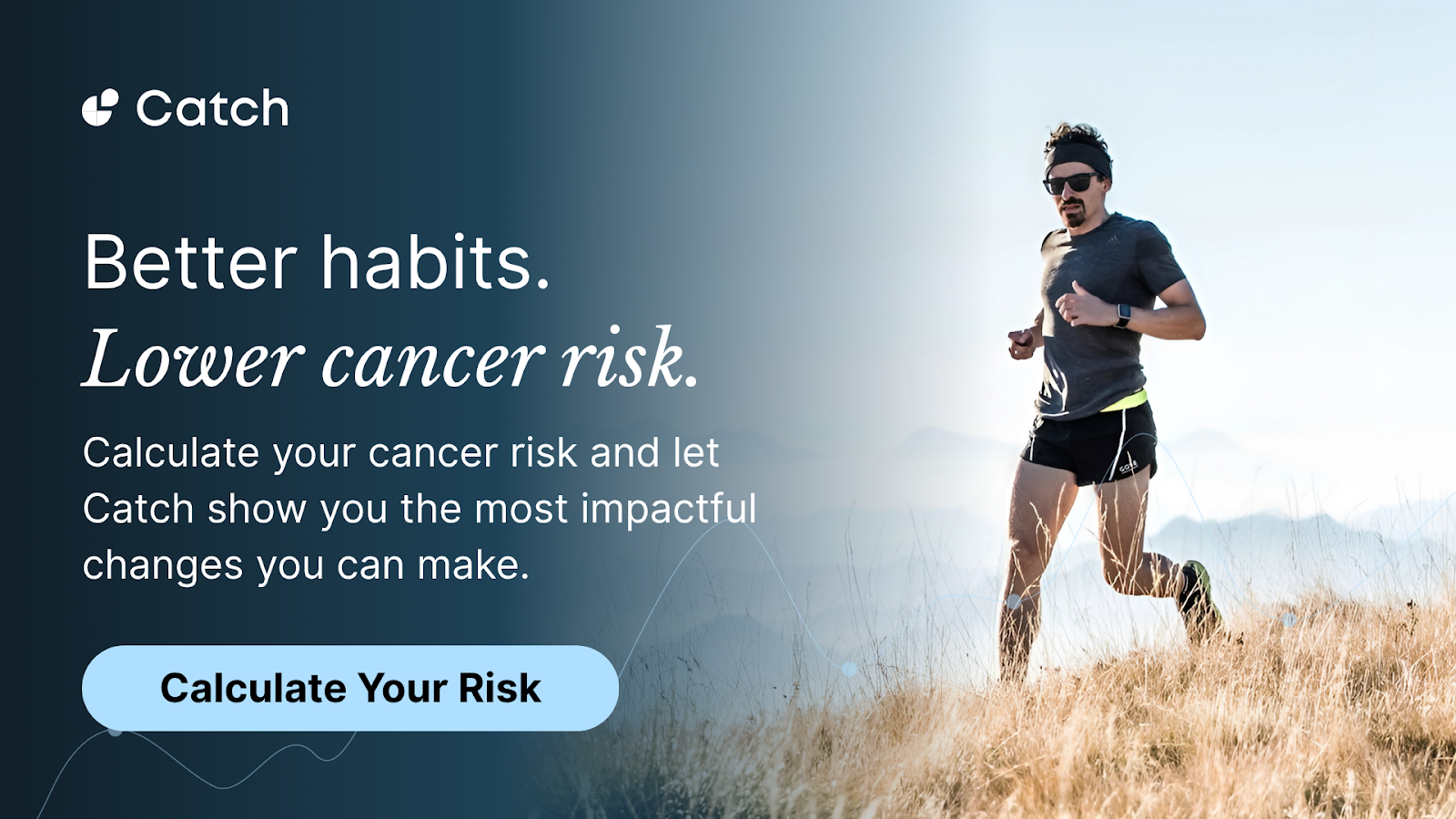
Strategies For Improving Sleep Quality
Improving your sleep quality doesn’t require a complete life overhaul; it’s about small, intentional tweaks that stack up over time. Here are some evidence-backed sleep hygiene strategies to get you started.
- Set a Consistent Sleep Schedule: Your body thrives on rhythm, and erratic bedtimes throw your internal clock (your circadian rhythm) into chaos. Pick a bedtime and wake-up time that works for you, and stick to it, even on weekends. Research shows that regularity can improve sleep onset and duration, which matters when trying to optimize every factor in your health arsenal.
- Curb Screen Time: Screens emit blue light, which suppresses melatonin, the hormone that signals it’s time to sleep. Studies, including those from the National Sleep Foundation, suggest cutting off screens at least an hour before bed. If that’s a non-starter, blue light filters or glasses can help, though they’re not a perfect fix. Better yet, swap the device for a book.
- Be Mindful of Your Sleep Environment: Consider your bedroom a sanctuary, not a multipurpose hub. Keep it dark, quiet, and calm. Blackout curtains, earplugs, or a white noise machine can block out disruptions. And don’t underestimate the power of a good mattress and pillows; if you wake up stiff or restless, they might be the culprit.
- De-Stress Before Bed: Stress is a sleep killer, and if your mind’s racing about tomorrow’s to-do list, you’re not drifting off anytime soon. Build a wind-down routine. Maybe it’s a warm shower, light stretching, deep breathing, or a quick meditation session. Mindfulness-based practices can significantly improve sleep quality, especially for those with insomnia.
- Limit Alcohol and Caffeine: Caffeine’s half-life is about 5 to 6 hours, meaning that afternoon latte could still be buzzing in your system at midnight. Alcohol might make you feel sleepy initially, but it fragments sleep later in the night, affecting your sleep quality. It is also critical to note that alcohol itself is a known carcinogen that can raise your cancer risk.
Sleep is a restorative necessity and ally in understanding how to prevent cancer from a whole-person perspective. Think of sleep hygiene as a skill you can sharpen. Work to get in tune with your body so that you are aware of what impacts your sleep if you struggle with it.
Take Charge Of Your Cancer Risk With Catch
Now that you know more about the connection between lack of sleep and cancer, you’re probably wondering what you can do about it. That’s where Catch comes in. We’re not here to scare you; we’re here to arm you with the tools to take control of your cancer risk.
With Catch, you’re not just guessing. Here’s how we’ve got your back:
- Personalized Risk Assessment: Dive into a detailed breakdown of over 500 risk factors tailored to you.
- Custom Action Plan: Get a dynamic screening protocol and lifestyle interventions that adapt as you make changes.
- Track Your Progress: Use intuitive tools to see your risk drop as you prioritize areas of health and well-being, like sleep.
Don’t let uncertainty call the shots. Join Catch today and turn knowledge into power. Take control of your cancer risk, because your future is worth fighting for. Sign up now and start your journey to a healthier, safer tomorrow.
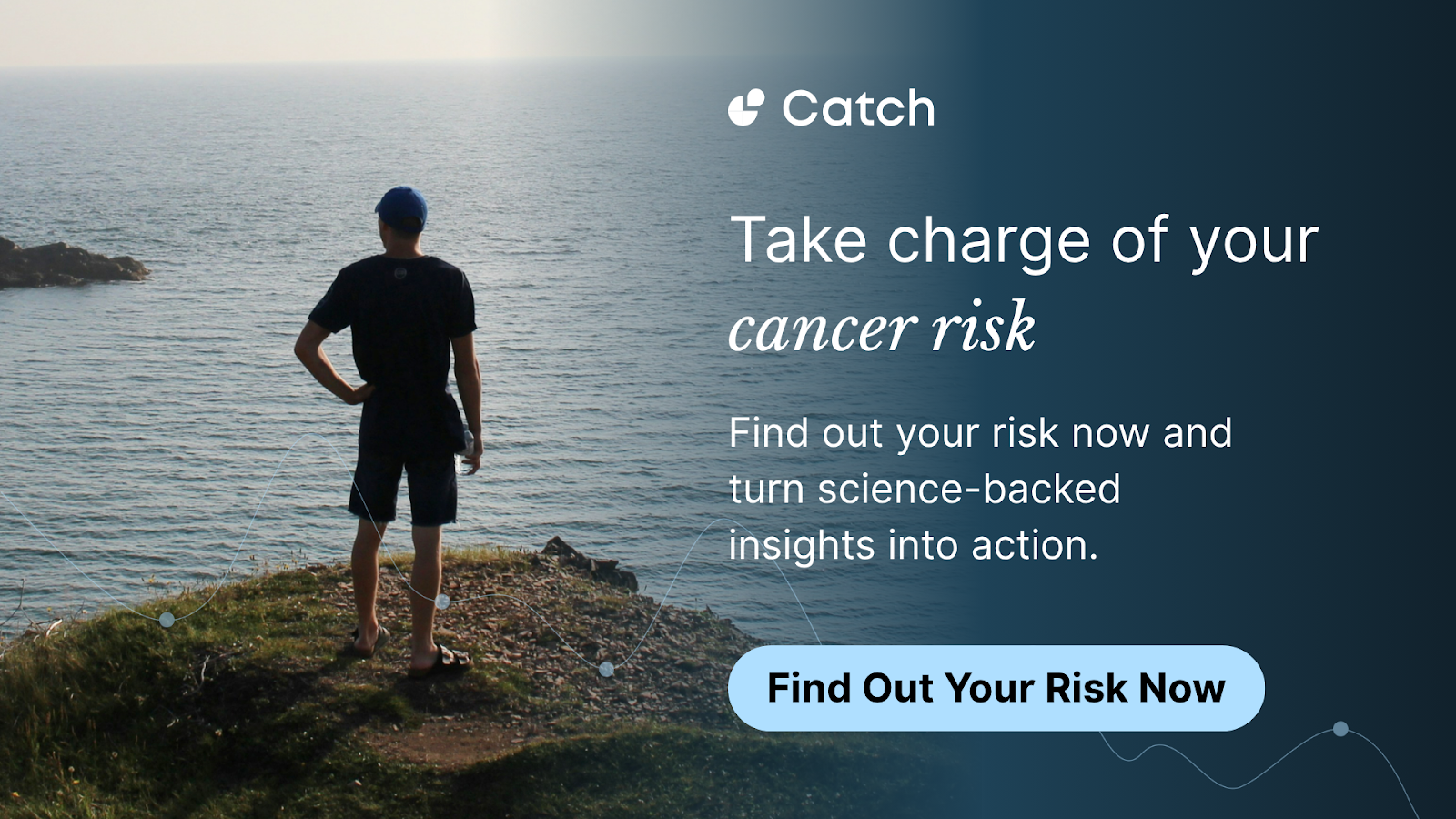
Final Thoughts
The connection between lack of sleep and cancer risk is a real wake-up call. While it is clear that chronic sleep deprivation negatively impacts your body on a cellular level, potentially raising your odds of facing something as serious as cancer, you’re not powerless. You can facilitate change and reduce your risk. That’s where Catch comes in.
At Catch, we’re not about empty promises or generic advice. We draw from over 10,000 clinical studies to map out your unique risk of 21 cancer types. Our assessments aren’t guesses; they’re data-driven deep dives into over 500 risk factors, giving you a personalized risk map, custom screening plans, and actionable steps to lower your odds.
You can also track your progress and watch the numbers shift as time goes on and you take control of your cancer risk through the changes we recommended. Live smarter and let Catch guide you toward cancer prevention with science-backed strategies.
Read also:
Frequently Asked Questions About Lack Of Sleep And Cancer Risk
How does sleep affect cancer cells?
Studies suggest that inadequate sleep may increase the risk of various cancer types, including breast, prostate, and colorectal cancers. During deep sleep, your immune system ramps up, targeting abnormal cells, including potential cancer cells, before they can multiply. Lack of sleep weakens this defense, potentially allowing cancer cells to grow.
How many hours of sleep are recommended for healthy adults?
The Centers for Disease Control and Prevention (CDC) recommends that healthy adults aged 18-60 years get at least seven hours of quality sleep per night. This range supports optimal immune function, hormone balance, and cellular repair, all of which are critical for reducing cancer risk. Recommendations change as you age, so make sure that you stay up-to-date.
Are night shift workers at higher risk for cancer?
Unfortunately, yes. The World Health Organization has even classified night shift work as a probable carcinogen. Catch can provide tailored recommendations to mitigate your risk if this is your reality.
Can sleep apnea contribute to cancer growth?
Emerging research suggests a link between sleep apnea, a condition causing interrupted breathing during sleep, and cancer progression. The repeated oxygen deprivation stresses the body, promoting inflammation and potentially fueling tumor growth. If you suspect that you have sleep apnea, it is essential to consult a doctor.
Can you get cancer from not sleeping?
While it is not a direct cause, lack of sleep may increase your cancer risk. Those wondering whether sleep deficiency can cause cancer may want to consult with a medical professional if a lack of sleep or poor quality persists despite good sleep hygiene.
How does sleep deprivation affect cancer treatment outcomes?
For those already battling cancer, sleep is a critical ally. Lack of sleep can weaken the immune system, reduce tolerance to treatments like chemotherapy, and slow recovery. Studies show that poor sleep may even impact survival rates by affecting how the body fights cancer.
Does sleep impact hormone levels related to cancer?
Yes. Sleep regulates hormones like melatonin, cortisol, and insulin, all playing roles in cancer risk. Melatonin, for instance, has antioxidant properties that protect cells from damage, while chronic sleep loss can spike cortisol, fueling inflammation. Disruptions in these hormones can tip the scales toward cancer development.
Sources:
- American Cancer Society. (n.d.). Does Sleep Affect Cancer Risk? https://www.cancer.org/cancer/risk-prevention/diet-physical-activity/sleep.html
- Cleveland Clinic. (2023, September 25). What Is Sleep Hygiene? https://health.clevelandclinic.org/sleep-hygiene
- National Institute on Alcohol Abuse and Alcoholism. (n.d.). Alcohol's Effects on the Body. https://www.niaaa.nih.gov/alcohols-effects-health/alcohols-effects-body
- Centers for Disease Control and Prevention. (2024, May 15). About Sleep. https://www.cdc.gov/sleep/about/index.html
- World Health Organization. (n.d.). IARC Monographs Volume 124: Night shift work. https://www.iarc.who.int/news-events/iarc-monographs-volume-124-night-shift-work/
- Reiter RJ;Tan DX;Mayo JC;Sainz RM;Leon J;Czarnocki Z; (n.d.). Melatonin as an antioxidant: Biochemical mechanisms and pathophysiological implications in humans. Acta biochimica Polonica. https://pubmed.ncbi.nlm.nih.gov/14740000/





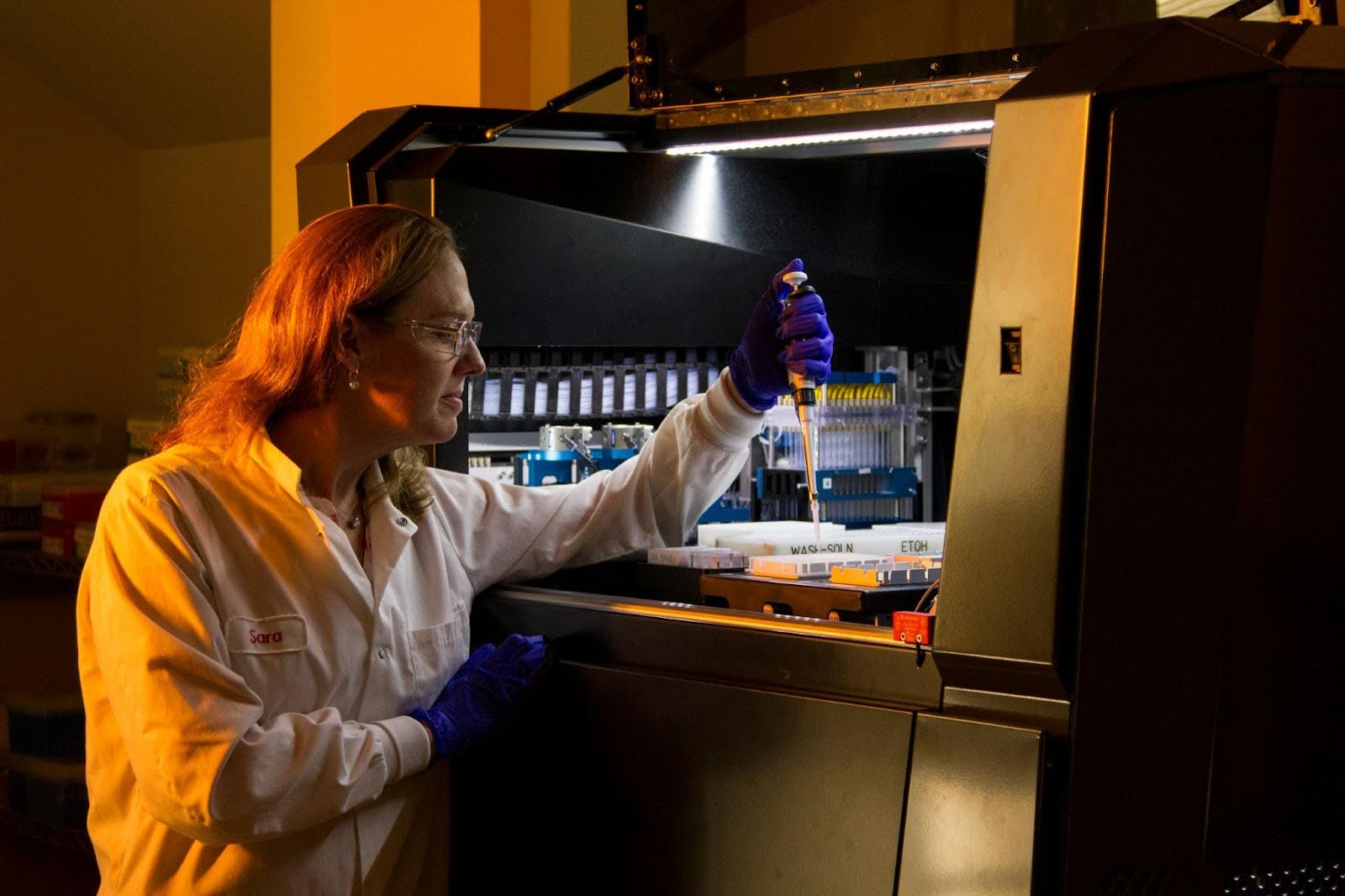
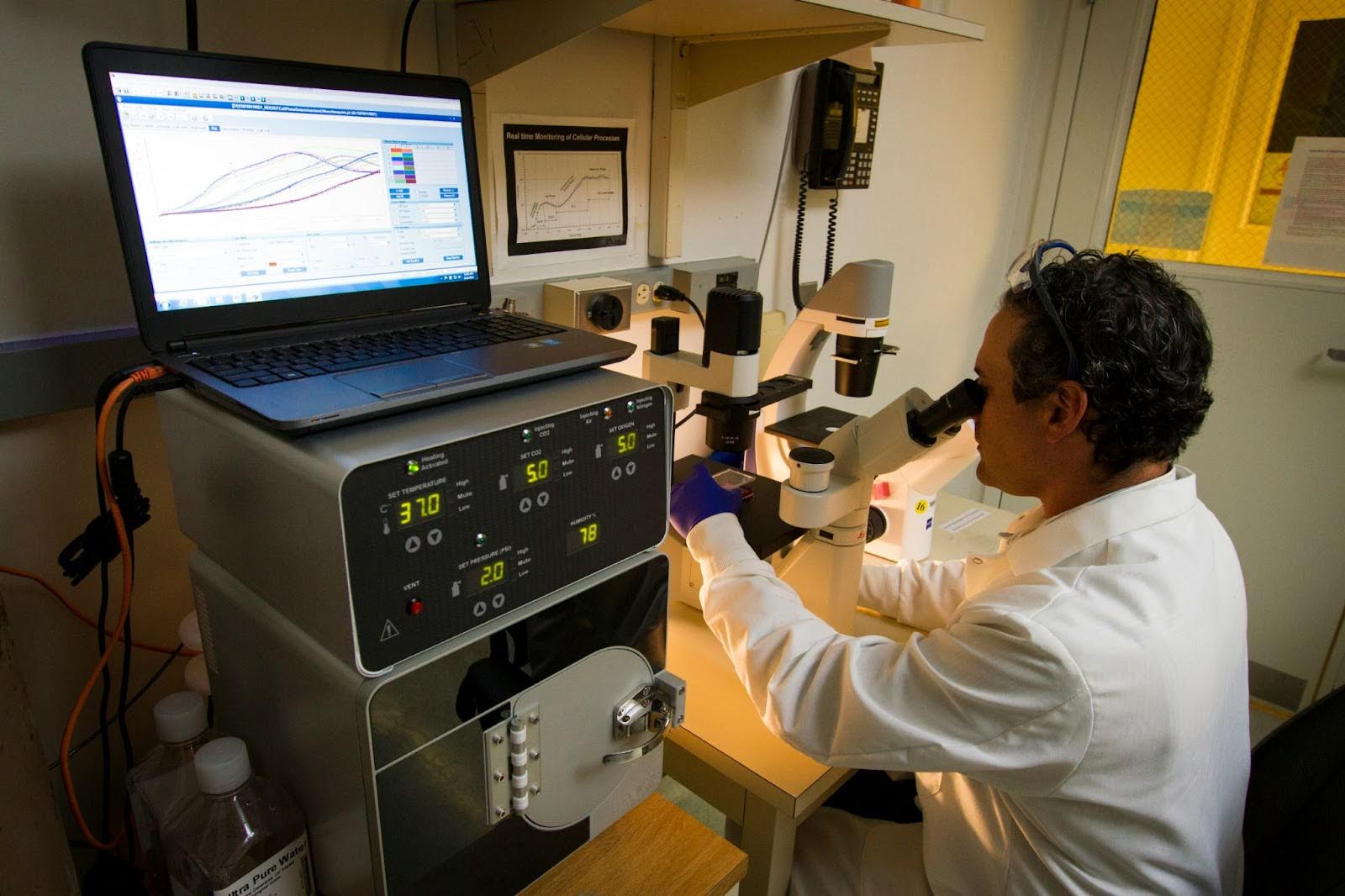



.svg)



